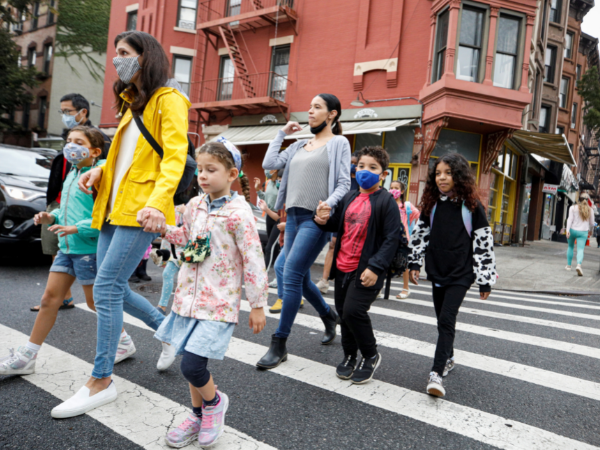Children may not be able to develop COVID-19 antibodies
Researchers found that only a small percentage of 37% of children have developed antibodies compared to 76% of adults.
Below is a summary of some of the results of recent COVID-19 studies. While research calls for further study to justify these findings, it is still yet to be verified by an associated review.
Children with mild COVID-19 may have antibodies shortage after
A study from Australia shows that children who acquire a mild case of COVID-19 may not generate antibodies to the virus afterward. The researchers conducted a test comparing 51 adults and 57 children with asymptomatic COVID-19. The result shows that there’s a lower rate of antibodies development in children as compared to adults.
Excellent question by Miriam Cates MP 13/09/21:
Given the known and unknown risks of vaccinating healthy children and that 40-70% are estimated already to have antibodies, what plans do you have to offer antibody testing to children so that parents can make an informed decision? pic.twitter.com/EfsvXeAhWK
— UsForThemUK 🌟 (@UsforThemUK) September 14, 2021
Even though the viral levels are the same between the two groups, researchers also found that the children’s bodies didn’t produce cellular immune reactions to the virus-like that of the adults. This is according to study leader Paul Licciardi from Murdoch Children’s Research Institute in Melbourne.
His team reported on medRxiv that the research participants will have COVID-19 in 2020. Licciardi said, “Whether this means children are susceptible to re-infection is not known.”
Experimental oral COVID-19 vaccine shows positive results in monkeys
While an oral COVID-19 booster vaccine has promising results in monkeys, humans still need to test it. In addition, the oral booster incorporates the same vaccine technology.
Wherein a harmless virus carrier sends coronavirus proteins into cells of the tongue or cheeks and throat lining. It will then stimulate the antibody production that can eventually block the virus before it gets a place in the body. Dr. Stephen Russell, chief executive of Vyriad in Rochester, Minnesota, explained this as he’s the one who led the study.

Parents walk with children to school amid the coronavirus disease (COVID-19) pandemic in Brooklyn, New York, U.S. October 4, 2021. REUTERS/Brendan McDermid
He added, “Not only would an oral COVID-19 vaccine be more convenient and acceptable… but it might also lead to better immunity because it is being administered to the site where the COVID-19 virus typically comes into the body.”
According to Russell, the monkey’s antibody levels increased by almost 100-fold one week after vaccinations. It also didn’t show any side effects.
On Monday, there was a report of the study. BioRxiv says Vyriad is in talks with the US Food and Drug Administration in planning the human trials.
Plants can be helpful in vaccine production.
According to researchers developing nasal spray vaccines, plants could be useful to produce COVID-19 vaccines. While the vaccines function by sending out antigens replicas of the virus or bacteria, vaccines will then train the immune system to identify the invader and develop a defense against it.
Related Articles
Whether vaccine antigens are from mammals’ cells or plant-based, these are useful developments. As previous studies showed, vaccine antigens can come from tobacco-related Nicotiana benthamiana plants, and these are also safer and less expensive.
Though the intranasal vaccine isn’t a conventional vaccine substitute, it can add another layer of protection. It can stimulate the immune system protection in the passage airways where the virus first enters and attaches itself.
University of Ottawa study leader Allyson MacLean said, “We imagine the nasal spray being used to top-up immune protection when traveling or going to events with large numbers of people.”

